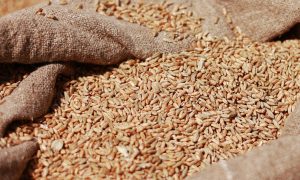Nigeria’s maize export ban ‘no big deal for Mzansi’

Nigeria’s maize export ban aims to stabilize domestic supplies amid declining production. With output projected at 11 million tonnes for 2023-2024, the country faces a supply deficit. Economist Wandile Sihlobo says the ban’s global impact will be minimal due to Nigeria’s limited maize exports. Meanwhile, Nigeria’s senate approved strict penalties for illegal maize exports, emphasizing food security and domestic market stability.
Nigeria’s maize export ban is making waves in Mzansi, but as Agbiz chief economist Wandile Sihlobo explains, the implications are unlikely to send shockwaves through global markets.
Nigeria, often regarded as one of Africa’s agricultural powerhouses, lags significantly in maize production and export capacity despite cultivating the crop on a staggering 5.5 million hectares – double the area used in South Africa.
However, Sihlobo points out a glaring disparity: South Africa, with just 2.5 million hectares under maize cultivation, consistently outperforms Nigeria, achieving harvests exceeding 16 million tonnes in favourable seasons.
“The key difference lies in agricultural practices,” Sihlobo notes.
“South Africa leverages advanced seed cultivars, optimal fertilizer usage, and modern farming techniques. These elements have driven its productivity and positioned the country as a major maize exporter, shipping over 3 million tonnes in good years.”
Nigeria’s maize challenge
In contrast, Nigeria’s productivity struggles result in an annual harvest of approximately 12.5 million tonnes, with yields falling short of meeting domestic consumption, estimated at 12.7 million tonnes.
The USDA forecasts that Nigeria’s maize production will dip further to 11 million tonnes for the 2023-2024 season, creating a deficit expected to be filled through imports of around 110 000 tonnes.
These tight supplies have driven the government’s decision to ban exports temporarily, aiming to stabilize domestic markets. However, Sihlobo dismisses concerns about significant global repercussions.
“Nigeria is not a notable player in maize trade,” he says. “Even at its peak in 2016, the country exported only 200,000 tonnes – dwarfed by the volumes traded by leading exporters like South Africa.”
Broader lessons for Africa
While the immediate effects of Nigeria’s export ban may only be felt by its neighbouring countries, Sihlobo highlights the broader lessons for the continent.
“Nigeria’s pedestrian maize production underscores the need for strategic interventions to boost agricultural productivity. Embracing biotechnology, investing in modern inputs, and adopting efficient farming practices are critical.”
Drawing from South Africa’s agricultural success, Sihlobo believes African countries can unlock their potential by fostering openness to innovation. His TED Talk, which delves into these topics, underscores the transformative power of technology and policy in addressing agricultural challenges.
“The continent cannot afford to overlook the importance of productivity,” he adds. “With the right investments and policies, African nations can achieve food security and become significant contributors to global food systems.”
Legislative action to enforce the ban
Meanwhile, Punch newspaper in Nigeria reports that the Nigerian senate has revised a bill to prohibit the export of unprocessed maize, introducing strict measures to deter violations.
“The revised provisions state that any individual who exports, facilitates the export, induces another person to export, or attempts to export unprocessed maize – whether in grains, on cobs, fresh, or dry – in large commercial quantities of at least one metric tonne or more, is guilty of an offence,” the report states.
Violators face penalties including fines equivalent to the value of the exported goods or a minimum one-year jail term. Customs officers and others who aid in illegal exports also face similar penalties under the bill, which grants jurisdiction over such cases to the Federal High Court.
The bill, spearheaded by senate leader Opeyemi Bamidele, is said to stabilise maize supplies and mitigate the country’s food crisis. Bamidele noted that the legislation had already undergone rigorous scrutiny in the house of representatives before receiving senate approval.
To read more about Maize News continue reading Agriinsite.com
Source : Foodformzansi















